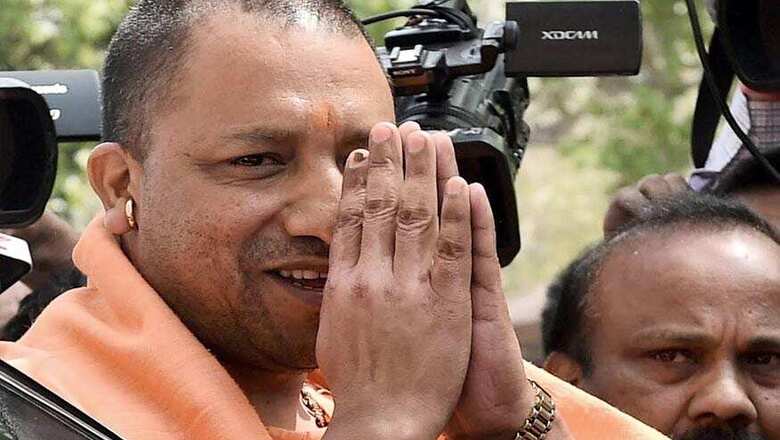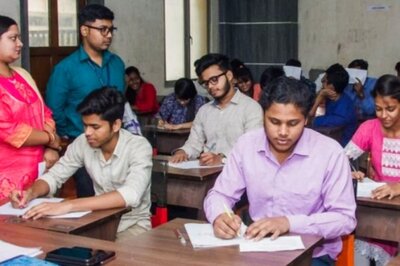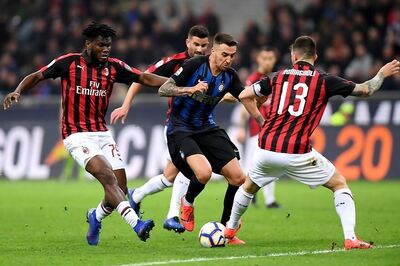
views
The election results were done and dissected, the rivals pulverised to the margins. The BJP then nominated observers to oversee the election of the leader of its legislature party in Lucknow.
"So is the legislature party meet on the 16th?" journalists asked BJP general secretary Bhupendra Yadav, who was one of the two nominees of the central leadership to oversee installation of a new government in Lucknow.
"The date hasn't been fixed yet," Yadav replied tersely at the gates of Parliament House.
Yadav was quite frank and honest in his response. There, in fact, was no decision yet on the date of the legislature party meeting. Because, it was yet to be decided who would be heading the legislature party.
In the first round of talks between the RSS and the BJP on the assessment of poll results, there was absolutely no second opinion about who would be leading the party in Uttarakhand. Former pracharak and Doiwala MLA Trivendra Rawat was the unanimous choice.
In fact, Trivendra was called and informed well in advance to make preparations for swearing-in but was instructed to keep the information to himself. The next day, Trivendra spent an entire day at an acquaintance's residence in south Delhi before taking the evening flight to Dehradun.
Such was the secrecy maintained that even the two central observers for Uttarakhand, Narendra Singh Tomar and Saroj Pandey, were informed of the high command's decision when the two reached the venue of legislature party meet.
In UP, however, both the suspense and speculations continued well after Uttarakhand had been settled and most of the senior RSS functionaries had left for the Sangh's annual general body meeting - Akhil Bhartiya Pratinidhi Sabha or ABPS - in Coimbatore.
The first was before the polls while debating on the CM candidate which BJP finally did not announce. The second, just after the polls and before the counting. And last, and perhaps most important one, after the mammoth mandate.
It now emerges that till the very last there indeed were three contenders for the CM's post in UP whose claims were weighed by both the party and the RSS.
"Rajnath Singh's name was a creation of the Delhi media with a particular intent. He was never in the race," says a senior RSS functionary involved in the deliberations.
That narrowed the race down to three: Aditya Nath Yogi, Keshav Maurya and Manoj Sinha.
In pre-poll surveys, says an RSS functionary, Yogi had registered high popularity among the cadre and voters. But the party did not go ahead and declare the head of the Gorakhnath Peeth as the CM, as it was felt his candidature might polarise minorities, especially in western UP.
But in flash surveys, conducted both after the last phase of polling and results, Yogi was seen to be way ahead of other contenders. He was followed by Keshav Maurya.
"While Yogi was seen to be registering over 40 percent popularity, Sinha was in single digits," another RSS leader told CNN-News18.
But there was a problem. In the current dispensation, there is a pattern in BJP's choice of CM candidates. Manohar Lal Khattar, Raghuvar Dan, Devendra Fadnavis and Vijay Rupani - all of the above leaders come from numerically less dominant communities in their states. Manoj Sinha, the Bhumihar MP from Ghazipur, fitted the bill perfectly.
But Sinha's candidature faced reservations from other quarters. His association with the RSS at best is tenuous. A senior RSS leader who has worked in UP says, "Sinha's links with people is limited and confined to a select few in the parivar. Secondly, he comes from a community which is a minority among the upper castes and confined to a few districts in Poorvanchal."
The argument against Yogi, on the other hand, was of a different kind. Firstly, it was to be decided if BJP would install two Thakur CMs in adjoining states, as Trivendra had already been nominated to lead Uttarakhand. Then it was felt by some - especially in discussions in the interim between the last phase of polling and results- that Aditya Nath's candidature would go not go down well with Delhi media. And lastly, there were concerns about Yogi's association with fringe organisations like Hindu Yuva Vahini and his predilection for taking his own line independent of the BJP.
But Yogi's ratings in the surveys, especially the ones after the results, decisively tilted the scales in his favour. "This is though he appeared to have lost out in the deliberations conducted after last phase of polling but before the results," says a leader.
And finally, it was also felt that Yogi also carried the authority to implement some of the promises made in the party manifesto which would require a strong leadership at the helm. But before finalising his candidature, the future of Hindu Yuva Vahini and Yogi's association with the party was discussed threadbare.
"It was a question of respecting the mandate. Most felt the Delhi media would have reacted adversely to Yogi's appointment. But the same media was predicting our defeat in UP. Then how does it really matter what they say," says an RSS leader.
And lastly, in UP’s caste quagmire, Aditya Nath in ochre-coloured robe was best suited to carry one and all if SP and BSP attempt to disrupt BJP's caste calculus in 2019 general polls.


















Comments
0 comment